President Donald Trump, in his first speech to a joint session of Congress last Tuesday night, managed to project a softer, more sober tone after his chaotic first five weeks in office. Gone was the bombast and the insults, and he even managed to look presidential as he asked his opponents to join him in seeking common ground.
“The time for trivial fights is behind us,” Trump declared, addressing the Democrats in the chamber. And he can afford to be magnanimous. Their ranks are depleted, and they have little power in Washington to block Trump’s agenda.
But there was no olive branch or call for compromise with that other group Trump and his White House minions have determined are “the real opposition party” – the mainstream news media. Trump’s self-declared battle with the press seems likely to go on, and that fight is anything but trivial. Vital American values and traditions, and the nation’s role in the world, are at stake.
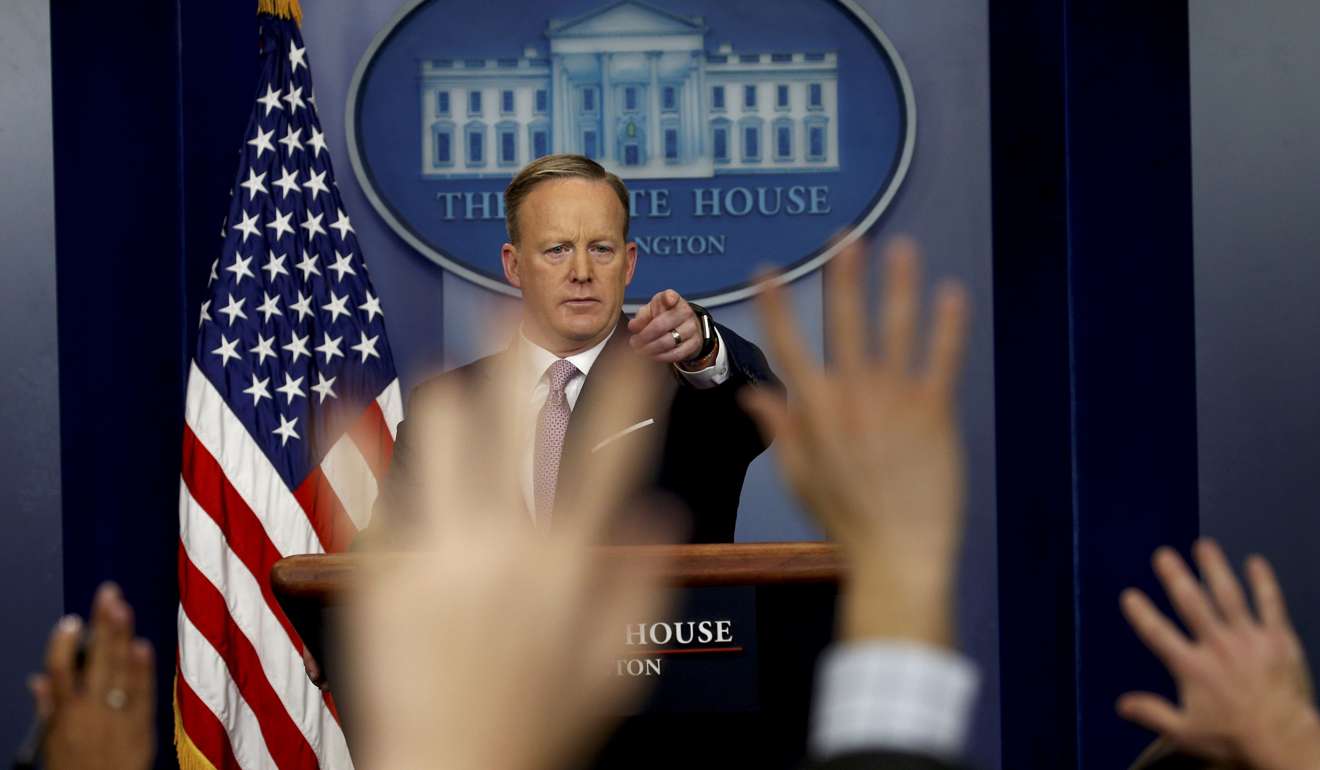
Consider; less than a week before his “conciliatory” address before Congress, Trump delivered another speech in Washington, to a group of riled up conservatives, where he declared the press – or “fake news” as he calls the media – “the enemy of the people”.
Calling reporters “very dishonest people”, Trump said: “They say that we can’t criticise their dishonest coverage because of the First Amendment,” his voice dripping with sarcasm. “You know, they always bring up the First Amendment.”
WATCH: Trump cuts off reporter asking about travel ban
Trump spoke to the gathering right after his White House chief strategist Steve Bannon, who told the same gathering that the “corporatist, globalist media” represented “the opposition party”, and vowed every day would be “a fight”.
The same day, the White House, in an unprecedented move, barred some reporters from a press briefing, including correspondents from major news outlets like The New York Times, CNN and BBC.
And the next day, Trump announced via Twitter that he would be skipping the annual White House Correspondents’ Dinner in April. The last president to skip the dinner was Ronald Reagan in 1981, who missed it because he was recovering from being shot in an assassination attempt.
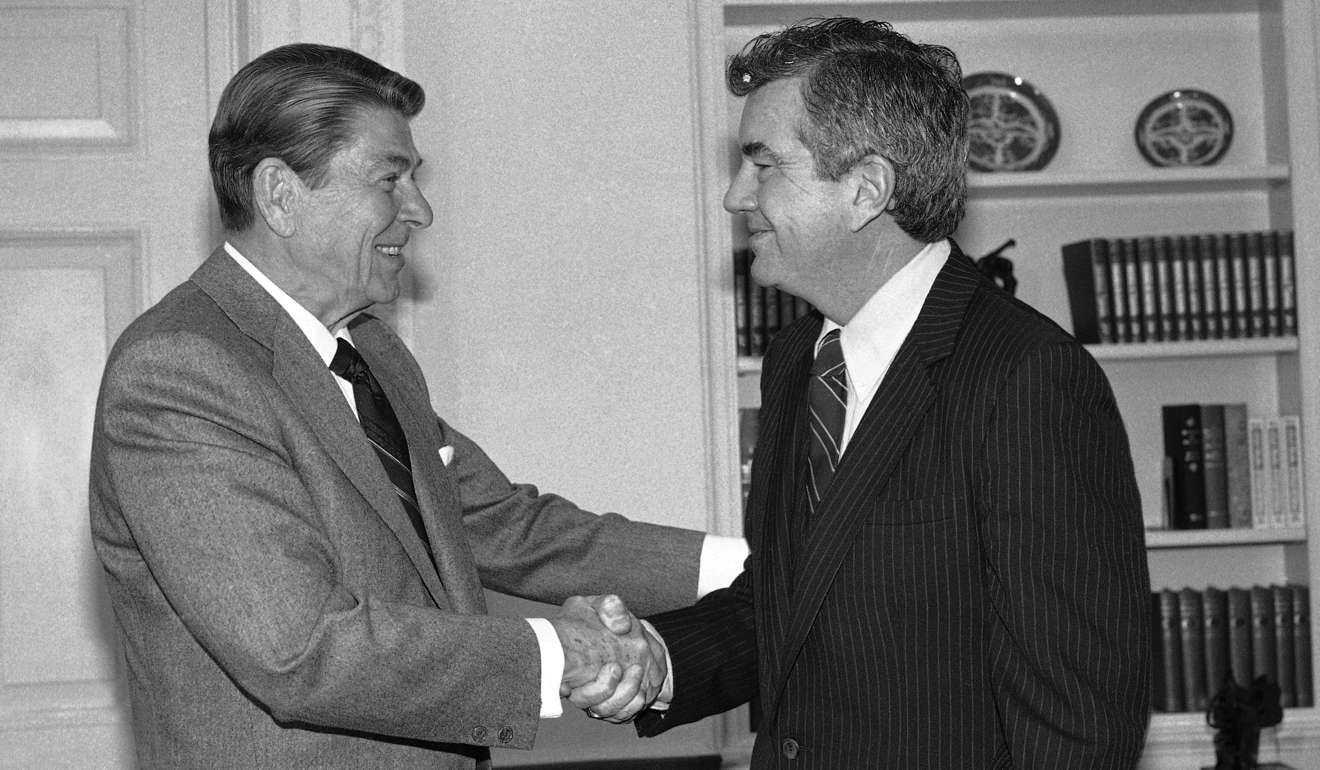
There’s a reason why Trump and Co. want to discredit the mainstream media as purveying “fake news” and paint it as the de facto opposition party. The Republican-led Congress has been effectively neutered, abrogating its oversight role and showing little inclination to seriously investigate the Trump campaign’s odd contacts with Russia, the president’s possible business conflicts of interest, or even what might be hiding in those tax returns that he refuses to make public. And this from the same Republican Congress that spent some US$6.8 million on 10 separate committees investigating the Benghazi attacks, in a vain attempt to smear Hillary Clinton.
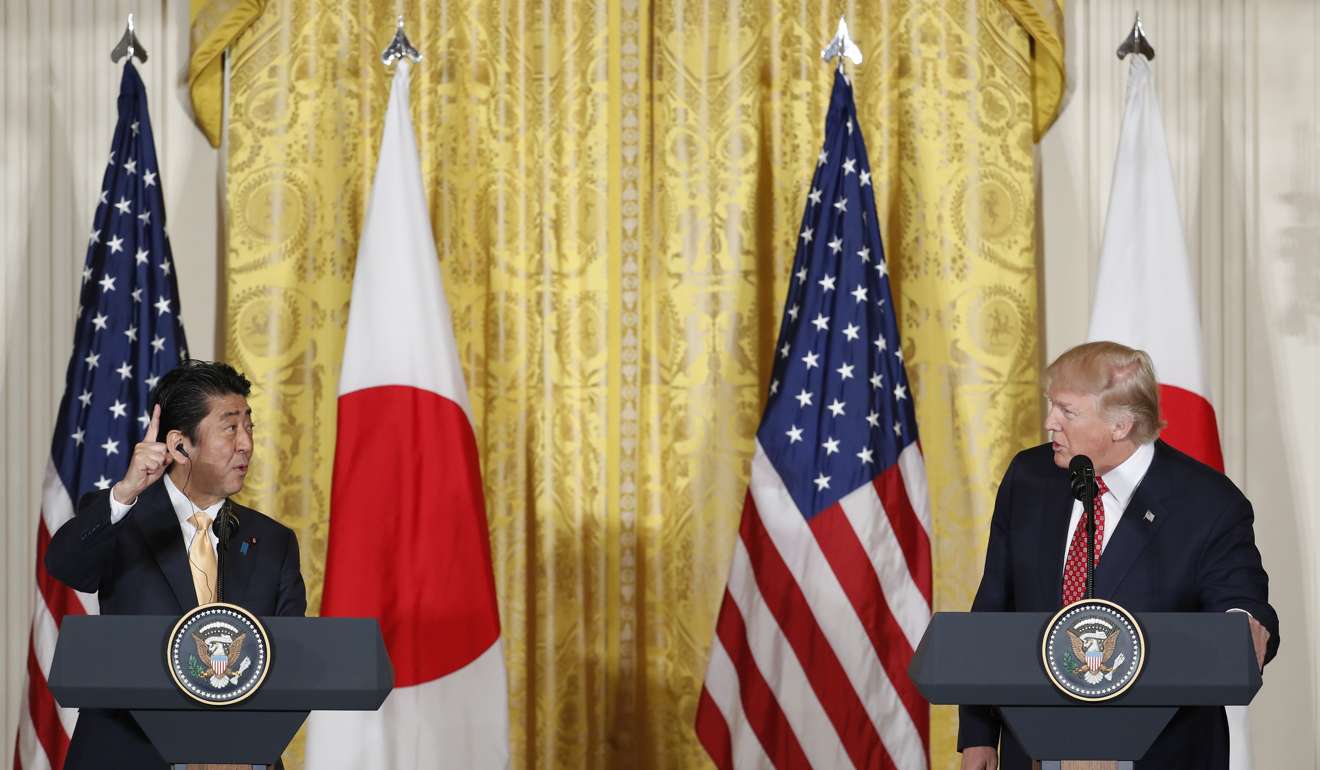
That leaves the press as the main institution left to probe, to uncover and to reveal – and yes, that means relying more often than not on anonymous sources and whistle-blowers. And that is precisely the role the press should be playing, holding this White House and government accountable, exposing its foibles, and letting the public know about decisions being made behind closed doors.
Donald Trump has gone a step too far with ban on media organisations
Trump’s attacks on the press are nothing new. Having covered autocratic regimes in Asia and Africa as a correspondent spanning three decades, I’m used to hearing the media denounced in similar terms.
In Beijing, authorities and their mouthpiece media outlets routinely criticised the “meddling foreign press” for presenting what they called a distorted view of the communist regime. In 2008, a website called Anti-CNN was established to combat “the lies and distortions of facts from the Western media”. Sound familiar?
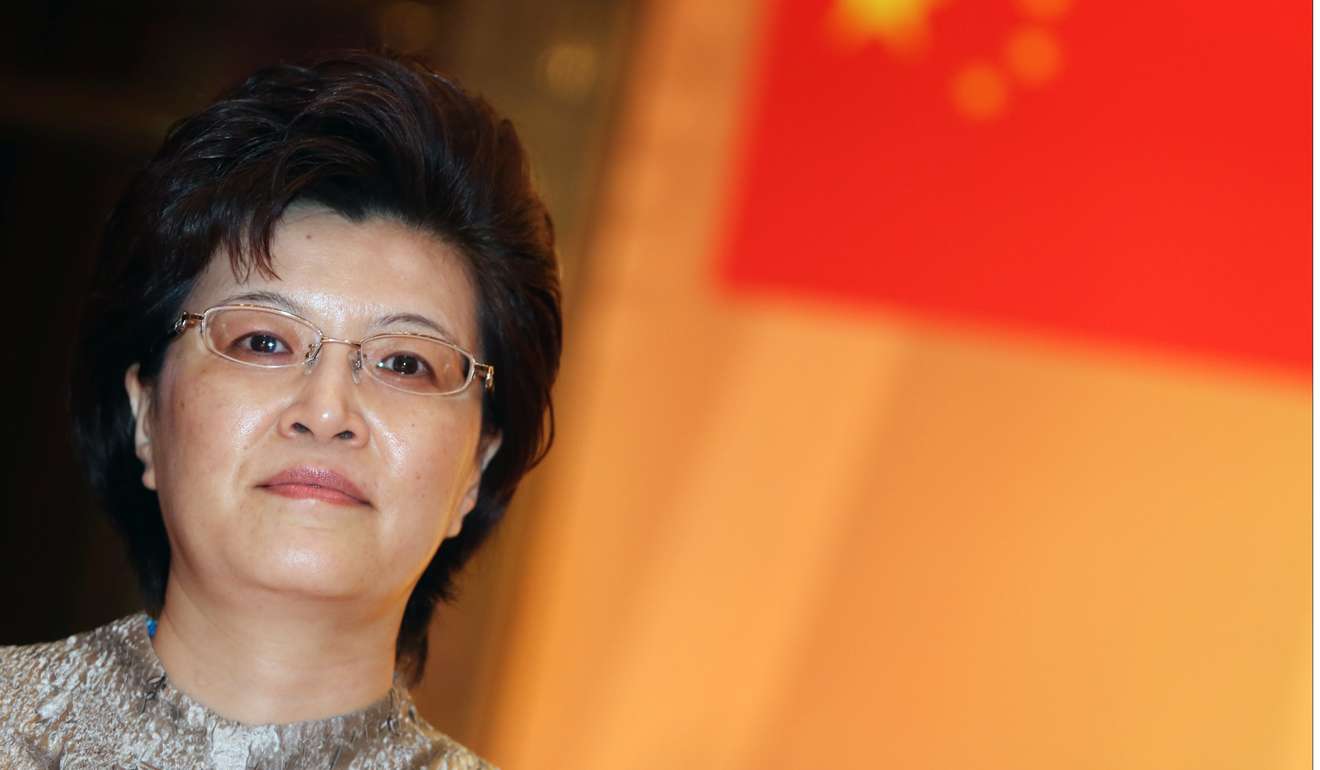
Trump’s sarcastic reference to journalists who “always bring up the First Amendment” sounds remarkably similar to Jiang Yu, who as Chinese foreign ministry spokesperson in 2011, eerily warned reporters at a briefing: “Don’t use the law as a shield.” That was after foreign reporters who attempted to cover what was supposed to be a protest rally in Beijing were roughed up, some violently, by police.
Banning errant reporters from official events? That’s not new either. In 2010, I was invited to a foreign ministry sponsored trip to Tibet ( 西藏 ) – before I was disinvited. The real reason, they let me know, was that officials were upset over an article written by another reporter that had appeared in The Washington Post.
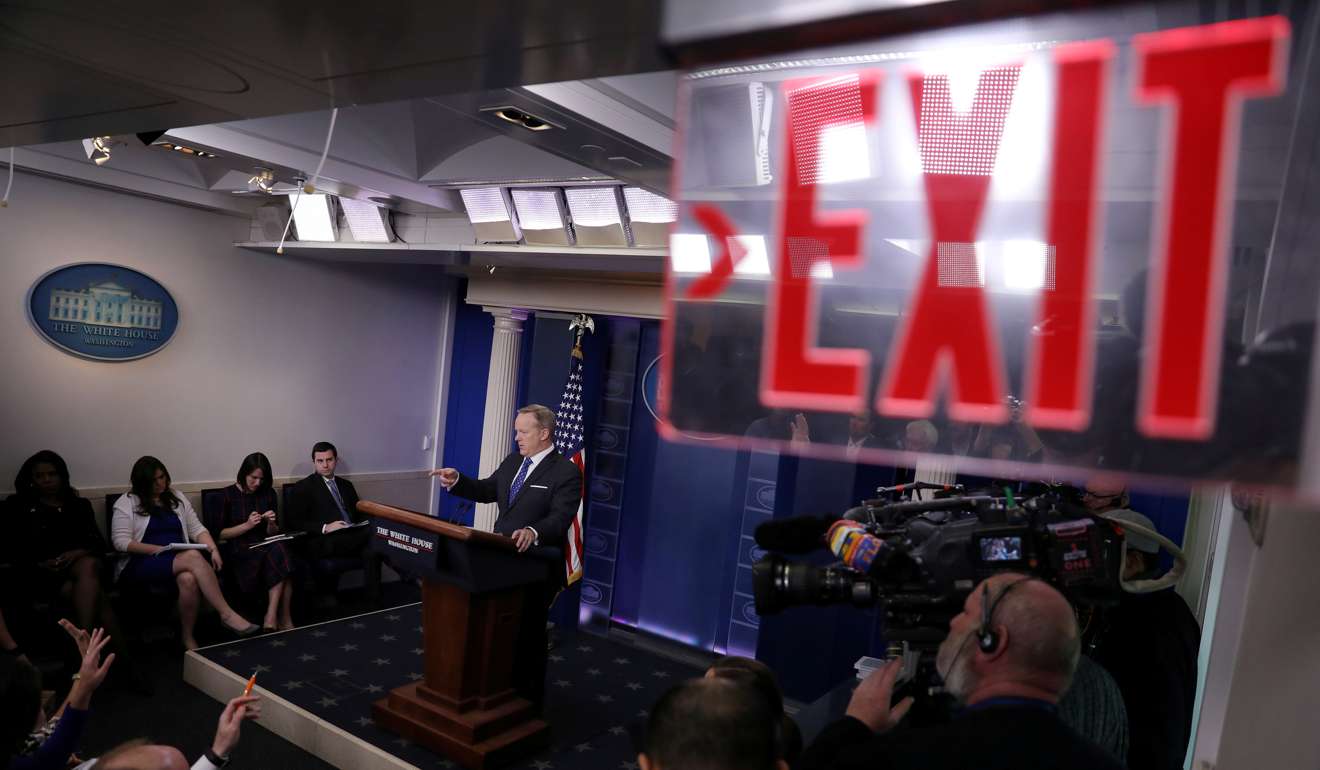
Bashing the press as the enemy and the opposition, trying to wield access as a weapon – these are all straight from the playbook of authoritarian regimes around the world, not just in China but across Asia.
The question is whether the US under Trump will still have the moral authority to speak out the next time a journalist is arrested, a newspaper is shut down, or a foreign correspondent deported.
How can Xi Jinping project strength in first handshake with Trump?
There was a time when journalists under duress around the world could count on the US government – Republican or Democratic – to be an outspoken defender of press freedom. With Trump, those days may be over.
When the press is derided as the enemy at home, it makes it harder for the US to speak out for press freedom abroad. As Trump would say: SAD!
Original link: https://www.scmp.com/week-asia/opinion/article/2075927/trumps-media-war-straight-playbook-communist-china



